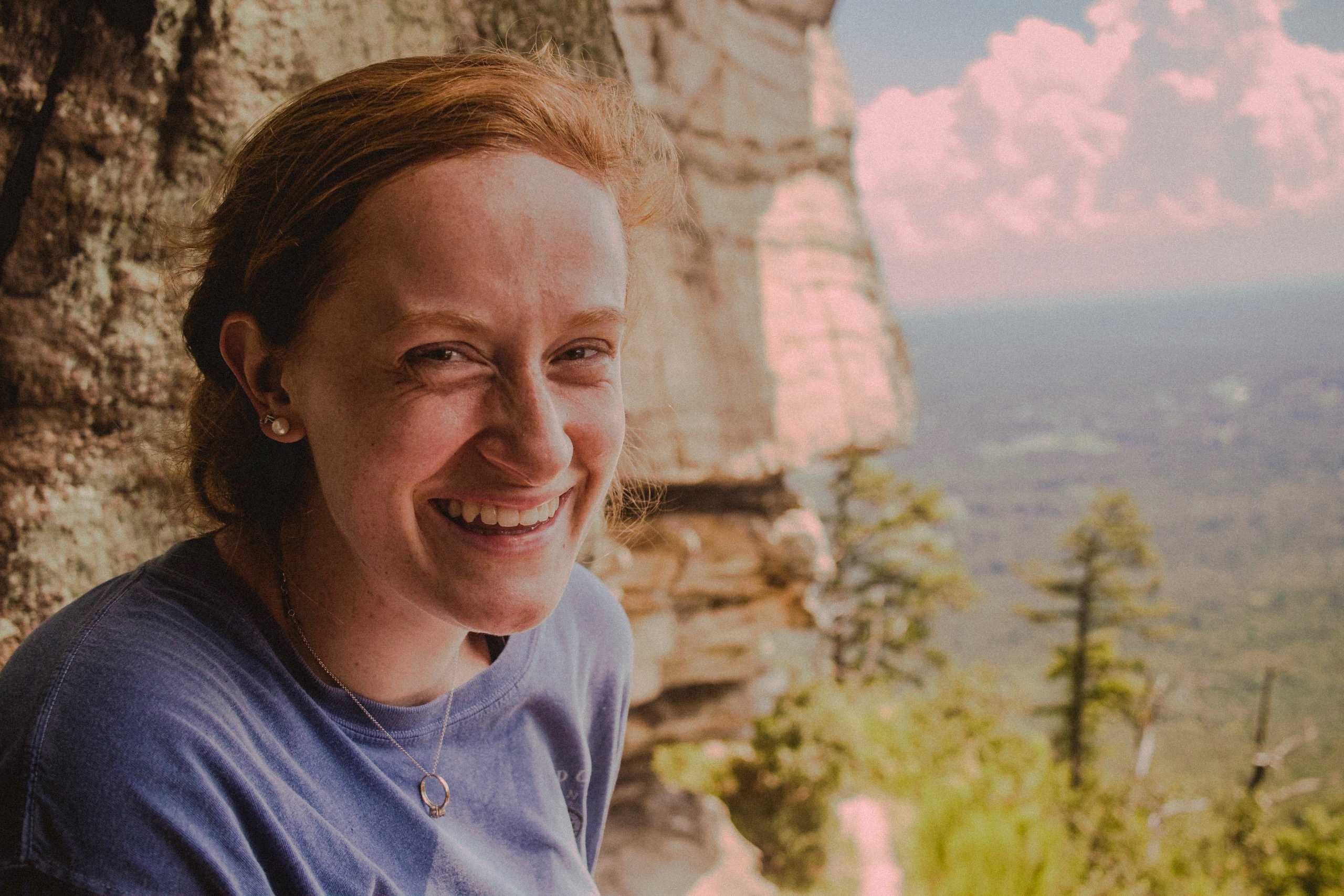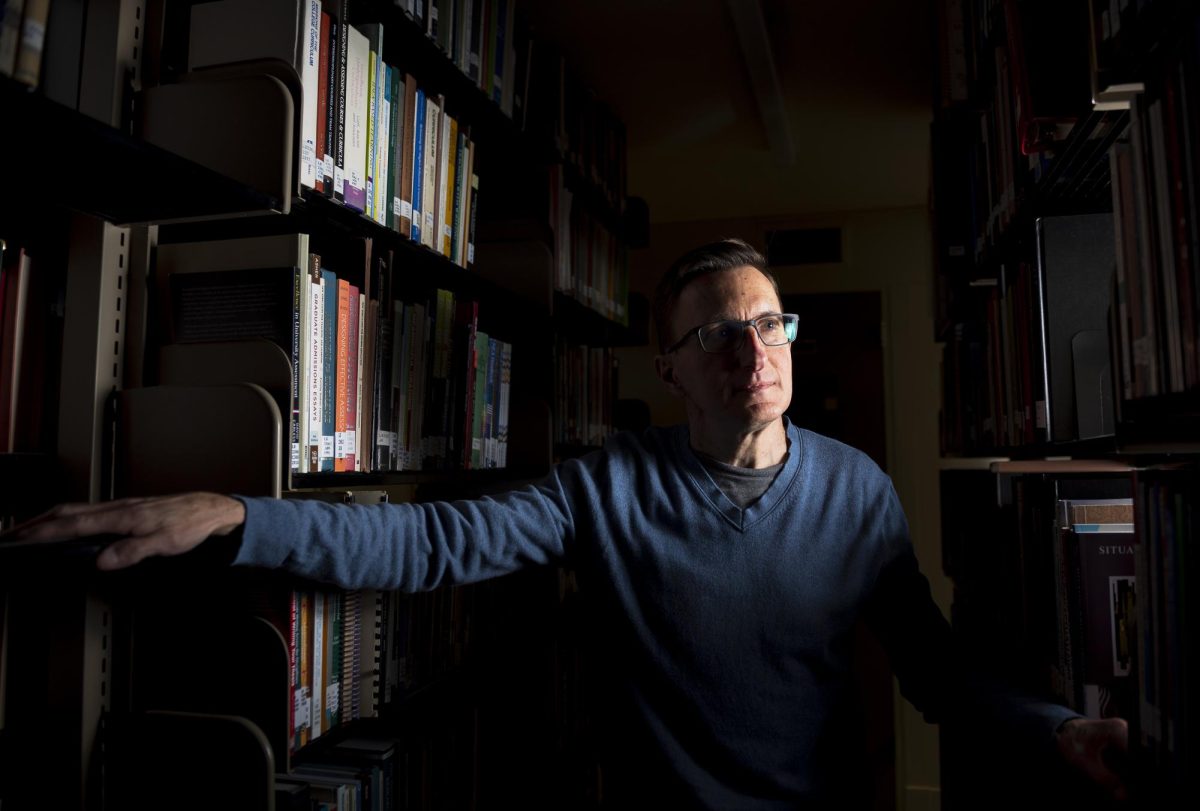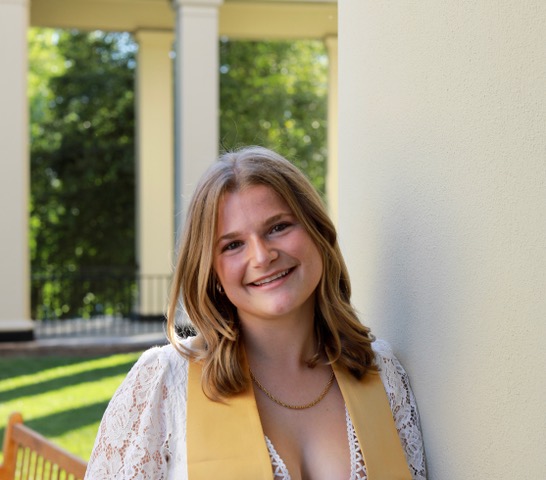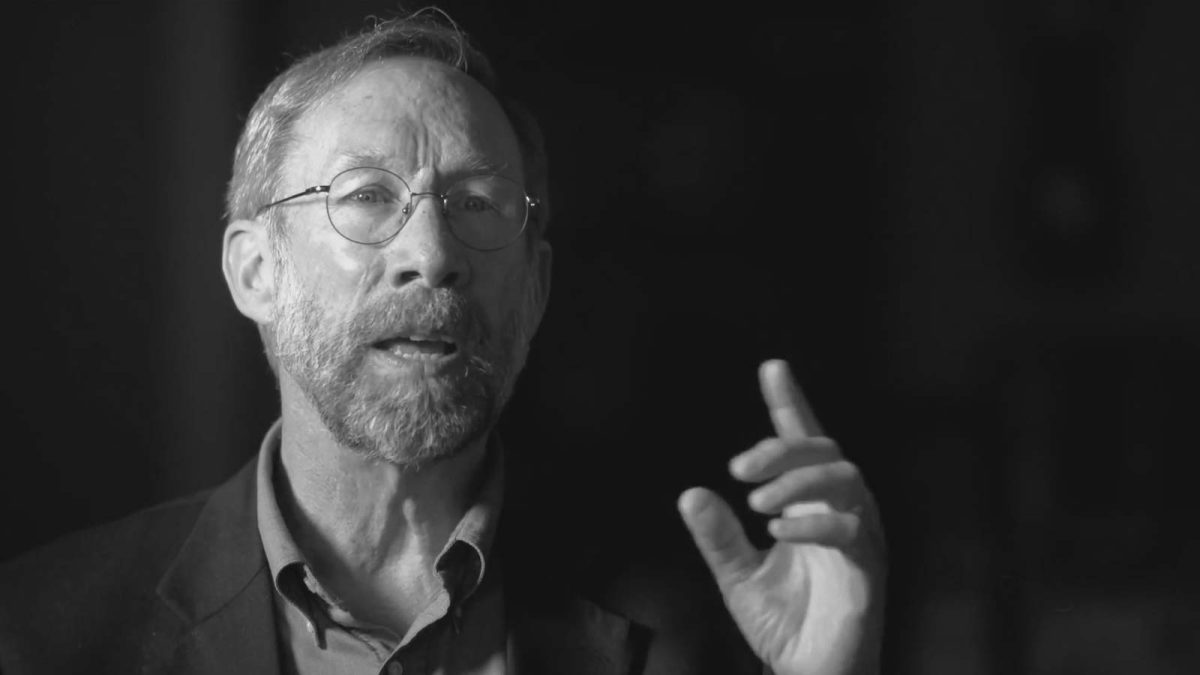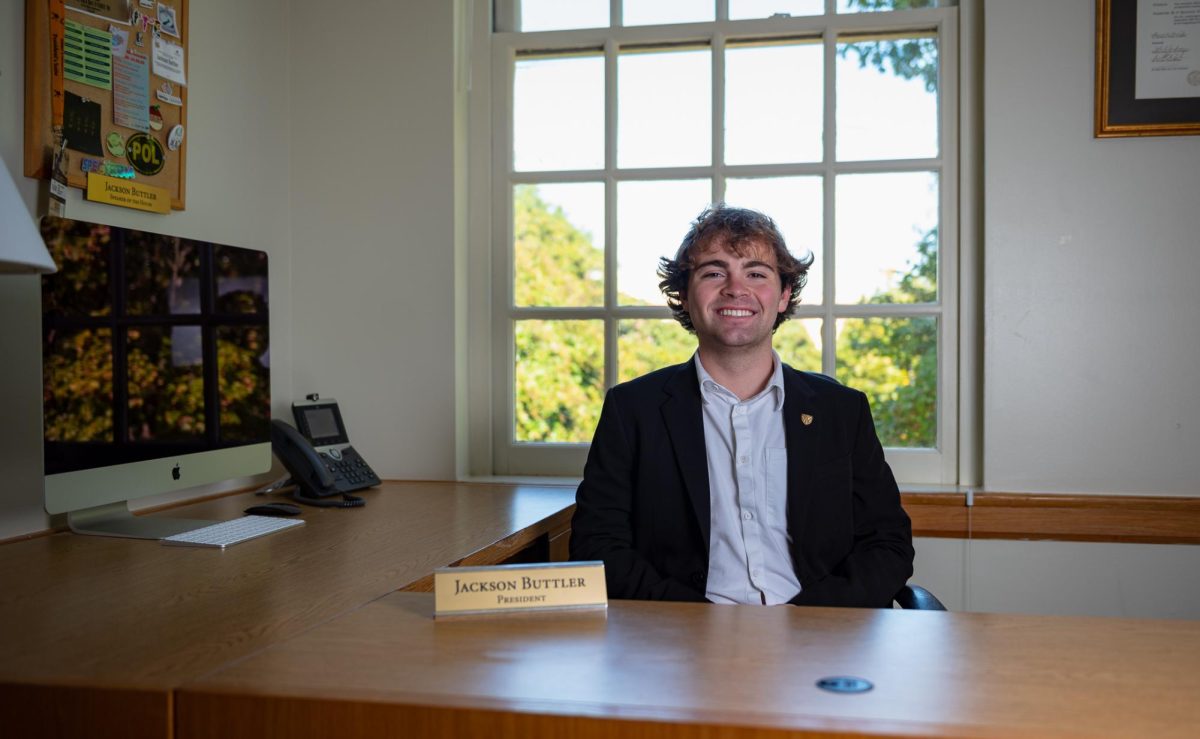Most college students can’t add ‘published author’ to their résumé. Sophomore Anna Shutley can.
In June, Shutley self-published her book Happy Tuesday: A Guide to Coping With Depression and Anxiety as a High School Girl. The short self-help book gives practical advice for someone dealing with anxiety and/or depression.
Why did you want to write this book?
I wanted to write it because I struggled with anxiety and depression for most of my time in high school. I’m a very proactive person and wanted to obviously change the state of my mental health as I didn’t like where I was, so I started going to therapy, got on antidepressants and bought a bunch of self-help books. I couldn’t really find anything in those books that I read that was really relatable to myself. A lot of them are written by 50-year-old psychologists and people who are very educated on the topic but don’t understand what it’s actually like to be in high school and struggling with these feelings. I wanted to give practical advice and share my experience with girls in the same situation from someone who understands.
How do you feel your advice differs from that of a more clinical perspective and other self-help books?
If you don’t understand what it feels like to be depressed and to have that deficit mentally, then you can’t really give proper advice. Yes, it makes sense in a perfect world; in a clinical sense, this is what you’d need to do to improve and this is what medicine does to your brain, but I think it was different since I understand exactly what those feelings are.
In the book, I say a lot [like] ‘I’m not here to tell you it’s going to get better and all that.’ That’s not what you want to hear and that’s not helpful to you. Instead, I give more practical, in-the-moment advice to help change thought processes and perceptions of the world.
Depression and anxiety aren’t totally clinical things. People try to make it out to be, but it’s so subjective.
It be can very challenging to want to work on yourself and want to improve, because you don’t have the energy and motivation to even do that. But you don’t want to resign yourself to your fate. I had thought, “Wow, this is really sad that at 15 years old I have to be on a drug to make myself happy.” I felt like a failure. That’s not a good way to approach things or a good mentality to have. It’s just a season of life, and if you work on it, it doesn’t have to be permanent.
How did you come up with the ideas for your book?
A lot of it was what I got out of my own therapy sessions and what high school girls deal with. They’re the main target demographic of my book. There’s sections on grades, friends, relationships, perfectionism and the environment of high school. Fifty-year-old psychologists aren’t going to write how it’s sad when nobody has a crush on you, but that’s still stuff you deal with and it’s valid.
I wrote most of it last winter break. I had been thinking about these things forever and written some stuff previously. Then I spent most of second semester last year editing. I wanted to keep it intentionally short, more like a long information pamphlet.
How did you go about getting it published?
I did a lot of research on different ways to publish. Obviously, I’m not going to get picked up by a traditional publisher — I have no credibility and I’m not an established author. You can self-publish with smaller publishers who will handle all marketing, distribution, production and a bit of the editing and finalizing process. Even the cheapest package was a thousand dollars and I don’t have that money. I published through Amazon Direct Publishing. You make an account and publish for free. You don’t make that much on royalities, but I didn’t have to put a bunch of money into it.
But I get the feeling that it’s not really about the money for you.
It was much more about reaching people. *Holding up the book* This wasn’t meant to be my career.
How does it feel to be holding a physical copy of your book?
So crazy! This whole process has been so emotional and constantly humbling. I went through my journals from 10th and 11th grade. I forgot how intense those emotions were. Going back, it was an amazing reminder of how far I’d come in my mental health recovery. I honestly didn’t think I was going to and didn’t really want to live to see my high school graduation, so the fact that my life has turned out this way and is so full is amazing.
It’s a great accomplishment.
And I want other people to have that. It’s one thing to have my friends and family reach out to me about the book, but I’ve also had complete strangers reach out to me and say, “I’m really struggling” or “My daughter is really struggling and your book provided a lot of insight for us.” Every time I cry. That’s all I wanted to do — help reach people and provide a little bit of comfort.
It’s surprisingly been almost more beneficial to moms. My mom told me, “We had no idea what you were feeling or what was the best way to go about it.” It was all uncharted territory for our family when I was diagnosed with depression and anxiety. That’s terrifying. I put a chapter in the end about parenting a child with depression, but I think a lot of it throughout can help give parents an understanding of how it feels. That’s been an unexpected surprised.
Was it challenging to be so honest about your mental health struggles?
It was terrifying and I still feel this bit of tension whenever someone tells me they read my book or ordered it. I obviously made a conscious decision to put my deepest thoughts and emotions out there on Amazon for anyone in the world to order, so that was definitely very scary but I’ve always been an open book and I wear my heart on my sleeve.
Keeping it to myself doesn’t help anybody, but if I can translate what I went through to help someone else I think it’s worth being vulnerable. I hope it’s inspired other people to be really vulnerable. Once you’re vulnerable, it opens up doors.
Would you like to ever see your book in ZSR?
*Laughs.* That would be cool. I don’t know if it’s legit enough for this.
Oh, it’s totally legit. How did you come up with the title for your book?
There’s a chapter about why it’s called that. I think other mental illness blogs or books set unrealistic goals for people, like “just hold on for Christmases, high school graduation, and having a family.” When you’re in that situation, your future doesn’t look positive and those don’t seem like things you’ll achieve. It doesn’t make sense to recover for Christmas, since it only happens once a year.
I’ve always asked people what their favorite day of week is and they always say Friday or Saturday. If you’re doing that, you’re wasting five-sevenths of your time waiting for something else. But if you can take any random Tuesday that’s just a mundane day and decide it’s going to be a really good day and focus on the happy, you’re in control of your own happiness.

